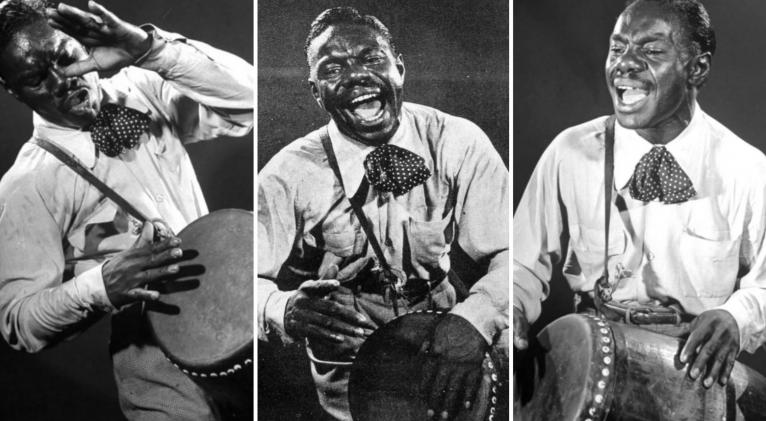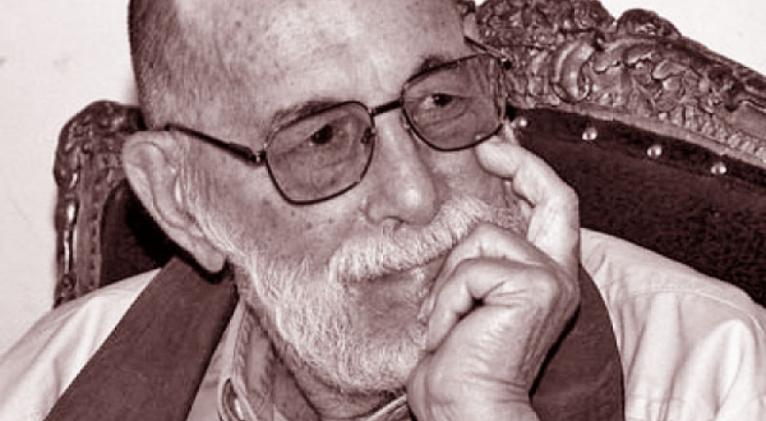Chano Pozo and the Origins of Latin Jazz

Chano Pozo, with his restless, receptive, and courageous nature, found himself caught in a spiral of poverty, living in miserable tenements and facing an uncertain fate. Despite his brief yet intense life, he left behind a legacy of unparalleled originality. His influence on Latin jazz is etched in history, particularly due to his improvisational skills. From his early professional steps at RHC Cadena Azul, through his performances in comparsas and various ensembles, to his final months in the United States, the life of Luciano Pozo González is marked by an intensity that highlights his charisma and dedication, transcending the accolades he received.
In Chano, we find a summary of his life—a shooting star in the vast universe—where significant content is condensed into a limited timeframe. This is reflected not only in the context of his existence but also in the choices he made. His untimely death, beyond the notable twists of fate and the fame that immortalized him, invites us to contemplate a different narrative. Nevertheless, Chano is Chano, encompassing the full canvas of his life. Speculation about his legacy traverses a realm detached from preconceived judgments; yet it is easy to understand the reasons behind his impact, the roots of his musical accent, and the enduring nature of his legacy over time.
Many highlight his religion and affiliation with the Abakuá as key elements that influenced his performance of the tumbadora within the Cuban context. This shaped the rhythm and essence of his compositions, which were informed by experiences in comparsas from an early age. Fernando Ortiz wrote: “Chano Pozo was a revolutionary among jazz drummers; his influence was direct, immediate, electric. The most esteemed drummers trembled before this unexpected reformer… Through Chano’s drum spoke his ancestors, but it also spoke for all of Cuba. The musician Chano, who infused North American jazz with new and vigorous energy, was one hundred percent Cuban. We must remember his name so it does not fade away like those of countless anonymous artists who have maintained the musical art of their genuine Cuban identity for centuries.”
Luciano Pozo was more than just the sum of his parts; he was a complex and contradictory whole, deeply rooted in his African heritage. His story is marked by the revelation that occurred on a winter night in 1947 when Manteca entered his life: “A Black Cuban, during a time of great discrimination, placed Cuban music on a pedestal,” explains researcher Rafael Lam. “The names Chano Pozo and Manteca began to circulate from mouth to mouth throughout New York and far beyond. One of the most listened-to songs in 1948 became an emblematic standard—a classic Cuban piece for history.”
Researcher and journalist Alfonzo Quiñones notes: “With Manteca, a unique path opened up that had begun with Machito and Mario Bauzá; it would change the course of music thanks to Dizzy Gillespie’s intuition and the receptiveness of the musicians who played in his band.” According to Alfredo ‘Al’ McKibbon, one of Chano’s closest associates: “That initial spark; Manteca truly opened my eyes, mind, heart… Chano told an ancestral story; he took us to another dimension—the magic of distant music; it was a phenomenal revolution. He inserted Cuban-Latin music into the world like no one else.”
As Leonardo Padura states: “He was everything that chroniclers, family members, and friends say he was—and much more: Chano embodied the marginalization of Havana during his time; he represented Havana itself: battered yet joyful, noisy yet pained.” Transformed by his tumultuous existence and originality, as well as by the integration of his religion and identity, Chano Pozo remains an icon in the evolution of jazz with Cuban roots; he symbolizes the immortalization of precedents that musicians admire and listeners long to hear.
Translated by Luis E. Amador Dominguez



